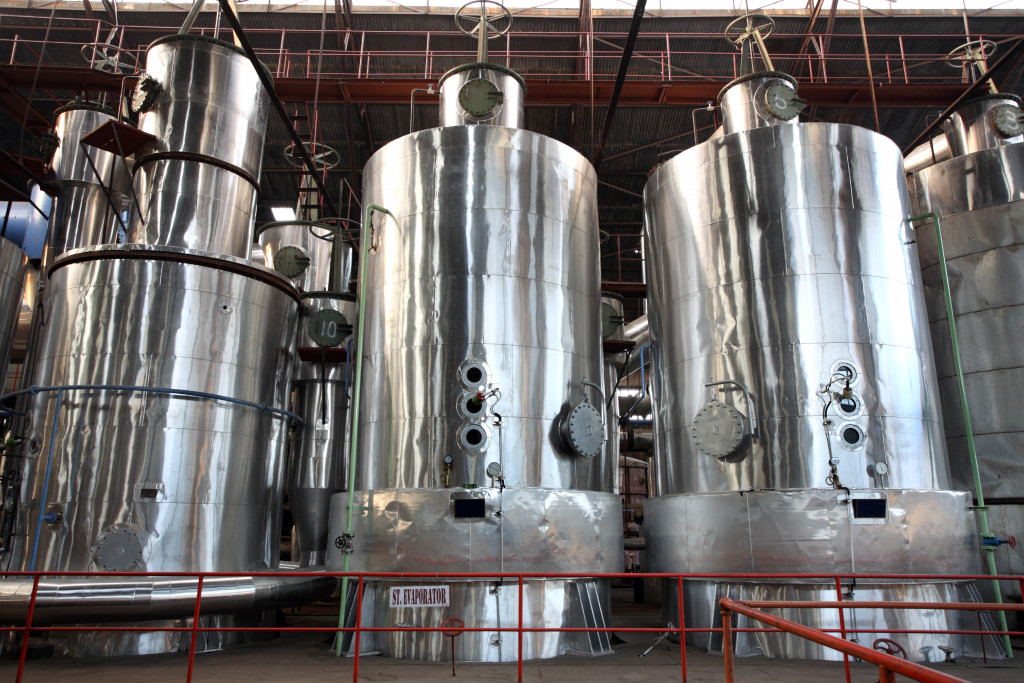
- Establish appropriate maintenance procedures and conduct frequent inspections to maintain the machinery in the best possible condition.
- Regularly cleaning surfaces can help you reduce machine downtime and repair costs and extend your equipment's lifespan.
- To improve performance and extend the machine's life, please ensure that you check the lubrication levels.
- It is advisable to keep a steady temperature to minimize delays, increase efficiency, and safeguard equipment.
Maintaining your factory mills is essential to ensure they remain in optimal working condition and continue producing high-quality products. Regular maintenance helps reduce the risk of costly breakdowns while also helping to increase productivity and efficiency.
With this in mind, here are some tips for maintaining your factory mills. By following these simple steps, you can keep your machinery running smoothly and ensure it continues to perform at its highest level.
Implement Proper Maintenance Procedures
Proper maintenance procedures are essential for running your factory mills at peak performance. Here are some tips on how to do it effectively:
Ensure Regular Inspections

Ensuring regular inspections of factory mills is crucial for proper maintenance and efficiency. One important aspect of these inspections is performing regular mill liner inspections. These inspections involve checking the condition and wear of the liners that protect the mill shell from damage caused by grinding media and ore. The wear of mill liners can greatly affect the mill's performance, so it is important to inspect and replace them if necessary regularly.
However, other areas should be inspected regularly, such as the motor and gearbox, lubrication systems, belts, and pulleys. By keeping up with regular inspections, factory mills can operate at their fullest potential and prevent unexpected downtime or costlier repairs later on. Therefore, it is highly recommended that factory managers prioritize consistent inspections as part of their maintenance routine.
Clean Surfaces Regularly
Maintaining cleanliness is an essential part of ensuring smooth operations in a factory. Regularly cleaning surfaces may be a seemingly mundane task, but preventing contamination, reducing machine downtime and repair costs, and extending equipment lifespan is critical. To efficiently clean surfaces, one must start by identifying areas that require attention.
These can include floors, walls, equipment, and even air ducts. Using the appropriate cleaning agents and disinfectants is critical, as certain products may damage materials and compromise equipment integrity. By investing time and effort into regular surface cleaning, manufacturers can create a safer and healthier work environment, limit the spread of germs, and prevent costly production interruptions.
Check Lubrication Levels

Proper maintenance is essential to the longevity and efficiency of machinery, especially in a fast-paced and high-volume industrial setting. Checking lubrication levels is important to ensuring factory mills are properly maintained. Lubrication helps reduce friction between moving parts, which can lead to wear and tear, overheating, and even machinery failure.
Unfortunately, many factory owners and operators often overlook this crucial preventative measure, potentially causing serious harm to their equipment and overall productivity. Checking lubrication levels is a relatively simple and inexpensive task that can significantly extend the lifespan and improve the performance of factory mills. Factory mills will operate optimally with the right tools, proper training, and regular maintenance checks.
Maintain a Consistent Temperature
Maintaining a consistent temperature is crucial when it comes to the proper functioning of any machinery. The same is true for factories. Without a consistent temperature, the machinery in a factory, including the mills, can malfunction or break down, leading to halted production, loss of revenue, and expensive repairs.
That's why it's important to implement proper temperature control measures in any factory setting. This includes regularly monitoring the temperature, identifying and repairing any temperature-related issues, and ensuring all equipment functions correctly. A factory can reduce downtime, improve productivity, and protect its assets by taking the necessary steps to maintain a consistent temperature.
Check Electrical Systems & Connectors
Checking electrical systems and connectors is an important maintenance practice for factory mills. This involves examining every electrical connection and ensuring they are secure and functioning correctly. Ignoring the maintenance of electrical systems may lead to several catastrophic events, such as power outages, machine malfunction, and even fire.
Proper maintenance of electrical systems can ensure the mills are running at their optimal efficiency and guarantee the safety of all employees and the protection of the machinery investments. A single fault in the electrical system can cause a domino effect on the entire working factory mill.
Therefore, it is crucial to have a periodic check-up schedule for electrical systems and connectors, even if they seem to be working fine. These checks will prevent potential damages that could lead to months of downtime or a total shutdown of the factory mill.
Replace Components When Necessary
Replacing components when necessary is one of the most important tasks that factory mills must undertake to ensure proper maintenance. These components include anything from bearings to motors and even electronic components. A failure to replace these parts promptly can result in low efficiency, increased downtime, and even expensive repair costs.
To maintain the optimal performance of factory mills, it is crucial to conduct regular inspections and replace components as soon as they show signs of wear and tear. This helps keep production running smoothly and ensures the safety of the equipment and workers. It is imperative to understand the importance of properly replacing components when necessary.
These are just some of the key tips for maintaining your factory mills. By taking these easy steps and regularly maintaining your equipment, you can lower the chances of expensive malfunctions and ensure your machinery performs at its best.
